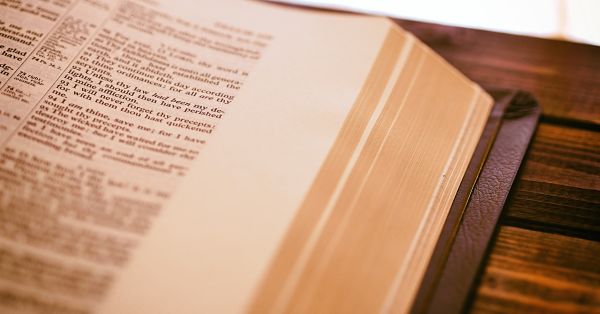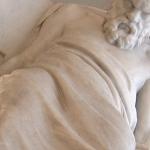 The thoughtless often go looking for a thought by quoting someone thoughtful. We receive a culture that was constructed with a combination of care and cupidity. The faults are obvious and so, carelessly, almost without concern, we start anew. We can have all the good without any of the bad, surely. Yes?
The thoughtless often go looking for a thought by quoting someone thoughtful. We receive a culture that was constructed with a combination of care and cupidity. The faults are obvious and so, carelessly, almost without concern, we start anew. We can have all the good without any of the bad, surely. Yes?
We inherit much and we assume we can improve easily. Plato, if he is to be believed, thinks this might be a mistake. Perhaps some of the props of society we knock away are necessary. What if we cannot even maintain ourselves? What if we create a culture of now and me so powerful that we cannot produce a future generation?
You can be sure of this: the last effete, credentialed, yet uneducated, wealthy Western youngling will quote some sage knowingly, because he is sure that he has nailed his opponent with a telling quotation. He quotes a civilization he could not create and sages who would despise him if they were not safely dead.
God help us.
Do not blame the clueless children, the parents who have left them a heritage of money, power, and gross immortality. Give your children power without the moral ability to exercise that power and you damn the republic. Worse, since people are more important than the polis, you will have damned his immortal soul.
He will feel righteous while making everything (generally) worse. Doubt this? Ask the Russian Revolutionary sure beyond reason that nothing whatsoever could be worse that the Tsar. Come Lenin and Stalin? Repentance is too late. Plato sees what happens when decadence is combined with desperation.
Plato sets the scene in Republic. The old father has retired to do oldster stuff and left the hard work of discussion to his son. It is easy to shout slogans when everyone agrees, hard to defend republican values when the mob and tyrants challenge the truth. The fathers know the better times, but they are tired. The sons know to repeat the old truths, yet they know too little.
Plato shows this when the father (Cephalus) retreats and the son (Polemarchus) is left to defend Athenians democracy. Pressured to defend his views, the son (Polemarchus) retreats to “smart guy quotations.”
Then tell us, Polemarchus, how the heir to the argument understands stands Simonides on justice and why you think him right.
I think Simonides speaks rightly when he says that justice is giving to each man his due. Simonides is a man of both intelligence and inspiration. It is difficult ficult to doubt him. Yet I must say that his meaning may be clear to you, Polemarchus, but not to me.
The father has abandoned the argument to his son, but father has not raised his son well. Father knows a thing or two, but he is gone. The son may be the “heir the argument,” but he does not have much understanding and little experience. He is eager to talk, but does not have much to say.
Have you ever met a young soul with the right answers, but the wrong questions?
That soul is Polemarchus.
Oddly, we are tempted to blame the son, instead of the father. If the old man has one job left, shouldn’t it be to model a love of wisdom for his adult child? Instead, the father cares only about himself. When he gets tired of the conversation, he “leaves it” to his son who is ill prepared.
God save us from elders in the city who do not care enough to clean up messes they have created. The son falls back on memorized answers, his education did not teach him to think for himself. No book, not even one without error, can be used well if the person reading it does not know how to apply the ideas in the book. Instead, the better the book the more likely it is to cut off thinking by sounding so good.
Mindless quotation of authority figures the way Polemarchus quotes the great poet Simonides does no good and often does great harm. We have an answer and apply it, even if we should not, and the answer gains false credibility from the the wisdom of the original writer, but the writer is not the one that made the application of his wisdom to this particular situation. Polemarchus did and Polemarchus is not wise!
God save us all from mindless application of any great thinker or book . . .
———————————————-
*I begin an informal summer reading of Republic using Scott/Sterling (a new translation for me). Part 1. Part 2. Part 3. Part 4. Part 5. Part 6. Part 7. Part 8. Part 9. Part 10. Part 11. Part 12. Part 13. Part 14.
**I have no idea how much of what I know is just Professor Al Geier filtered through my eccentricity. Here is to you Al!












